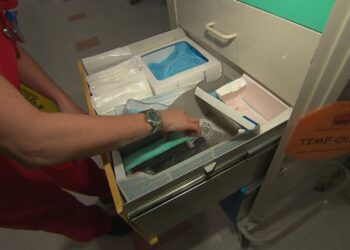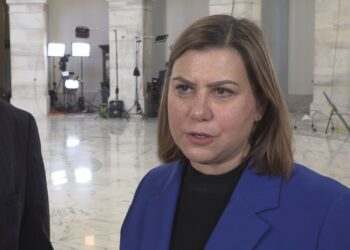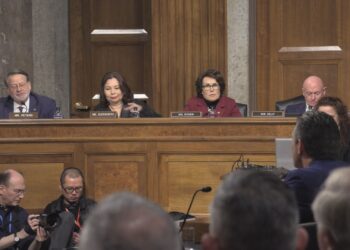WASHINGTON, D.C. – People across the U.P. and the nation sometimes have to choose between getting groceries or getting their prescription drugs. Americans pay some of the highest prices in the world for their medication and Michigan’s Senators said this is unfair. We spoke with Senator Debbie Stabenow (D- MI) on this issue and what Congress did to lower healthcare costs. However, these changes won’t happen immediately.
“I hear stories every day from people in Marquette and people across the U.P. about how they have to decide am I gonna have food on the table this month or am I gonna get my insulin,” said Sen. Stabenow.
Stabenow shares stories from Ppper Peninsula locals about the high costs of their prescription medication.
“I’ve had folks tell me stories about walking into the pharmacy and didn’t know the price went up and not being able to get the medicine and having to walk out and then try to figure out what am I going to do,” said the Senator.
She says it’s a reality too many people deal with. But to address this issue, Congress passed the Inflation Reduction Act, a bill that was recently signed into law.
“Starting in January anyone on Medicare who was a diabetic is going to see the cost for insulin capped at $35 a month out of pocket,” said the Senator. “Second, drug companies are not going to be able to raise prices faster than inflation without a penalty.”
And that’s not all.
“Medicare is now being given the power to negotiate a much better deal for everybody,” said the Senator.
Centers for Medicare and Medicaid Services sent us this statement:
CMS is working to implement its provisions of the Inflation Reduction Act. The Inflation Reduction Act establishes a new Drug Price Negotiation program under which the Secretary of the Department of Health and Human Services (HHS) will bilaterally negotiate with manufacturers of certain high spending brand-name drugs and biologicals under Medicare without price competition that are selected for negotiation in order to establish a maximum fair price.
By September 1, 2023, Medicare will select and announce the first 10 drugs for negotiation from a list of the highest spending brand-name Medicare Part D drugs without competition. Negotiated drug prices for these first 10 Medicare Part D drugs will be effective in 2026. Medicare will select and negotiate 15 Part D drugs for 2027, 15 Part B and Part D drugs for 2028, and 20 Part B and Part D drugs for each year thereafter. An excise tax or civil monetary penalties will be imposed on manufacturers that are noncompliant with negotiation requirements for selected drugs.
CMS will provide more information about the methodology and process in the future as we work to implement the law.
Representative Mike Kelly (R- PA) said we should all have access to life saving pharmaceuticals.
“The economics of it are important,” said Rep. Kelly. “If you want to talk about doing that, please don’t put it in a big spending bill that’s one and a half trillion dollars and tell me that this is what you need to do. It’s a no. Let’s get it down to that one issue and see what we can do.”
But until those negotiated drug prices kick in, Stabenow said this is a huge step forward.
“It should be affordable for you and we pay the highest prices in the world right now,” said Sen. Stabenow. “With what we have just done taking the drug companies because prices are going to come down and it’s about time.”
















